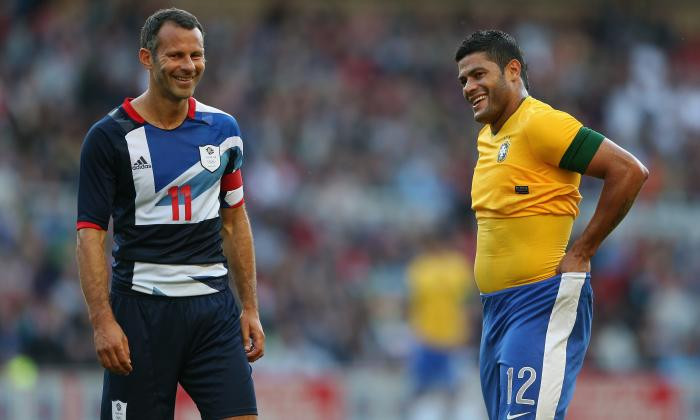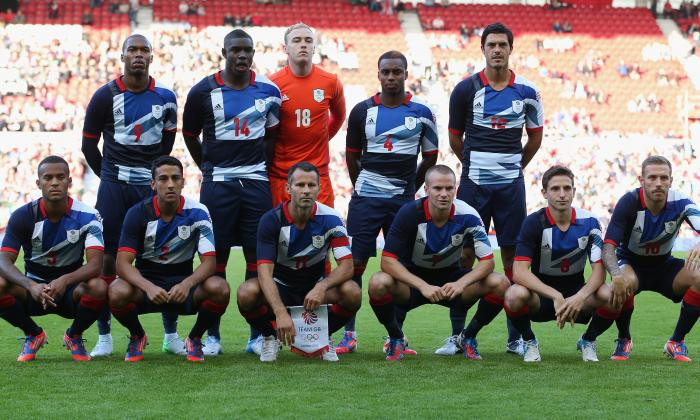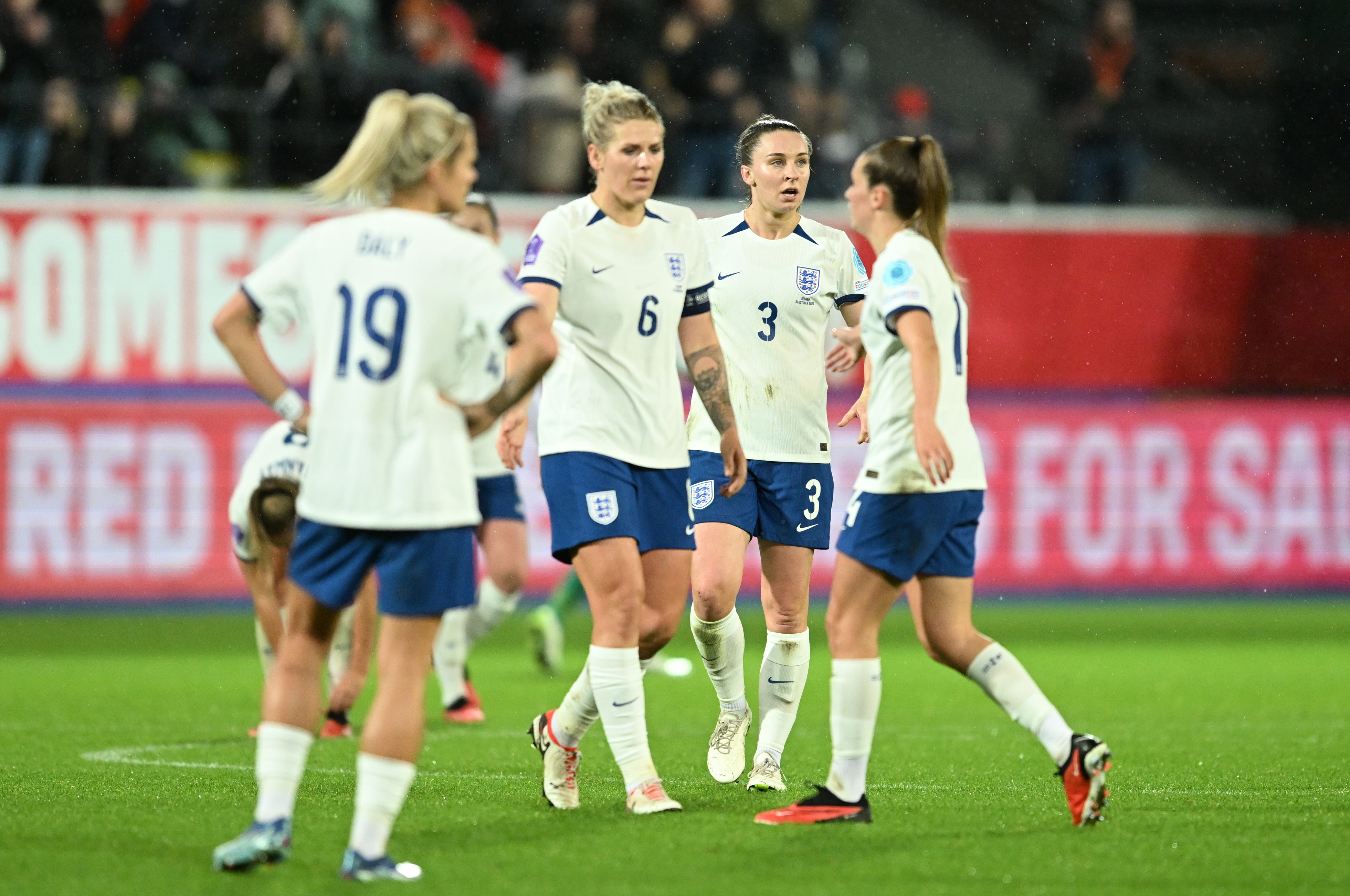Answering your question directly: No, Great Britain does not have a men’s or women’s Olympic football team competing in the upcoming Paris Olympics. This article delves into the reasons behind this absence, exploring the complex relationship between the UK’s football associations and the Olympic Games, providing valuable insights for sports enthusiasts and those curious about the intricacies of international sports representation. At CAUHOI2025.UK.COM, we aim to provide clear and reliable information on a wide range of topics, including sports and international competitions.
Here’s a detailed breakdown of why Team GB is not participating in Olympic football:
1. Understanding the Representation of the UK in Football and the Olympics
In international football, governed by FIFA and UEFA, the United Kingdom is represented by its four constituent nations: England, Wales, Scotland, and Northern Ireland. Each has its own Football Association (FA) and competes independently in tournaments like the World Cup and the European Championship. However, the Olympics, overseen by the International Olympic Committee (IOC), presents a different scenario.
1.1 The Unified Entity: Great Britain
Within the IOC framework, the home nations are registered as a single entity, Great Britain. This unified representation allows the UK to compete as one nation, accumulating medals under the banner of Team GB. This arrangement contrasts sharply with the independent representation in FIFA/UEFA competitions.
1.2 Historical Successes and Early Participation
Great Britain enjoyed considerable success in Olympic football during the early 20th century. The team unofficially claimed gold at the Paris 1900 Games, followed by official gold medals at the London 1908 and Stockholm 1912 Olympics. These early successes underscore the historical significance of British participation in Olympic football.
 Ryan Giggs captained Team GB at London 2012, marking a historic moment
Ryan Giggs captained Team GB at London 2012, marking a historic moment
1.3 Concerns Over Independence and the Hiatus
Over time, Scotland, Wales, and Northern Ireland grew concerned that participating as a single entity in the Olympics could jeopardize their independence within FIFA/UEFA tournaments. This apprehension led to the cessation of Team GB’s regular participation in Olympic men’s football starting in the 1970s.
2. The Exception: London 2012 Olympics
The London 2012 Olympics provided a brief exception to the absence of Team GB in men’s football. As the host nation, an agreement was reached to field a team, comprising 13 English and 5 Welsh players. However, no players from Scotland or Northern Ireland were included in the squad. Team GB’s journey ended in the quarter-finals with a penalty shootout loss to South Korea.
2.1 The Legacy of London 2012
Despite the quarter-final exit, the London 2012 Olympics marked a significant moment, showcasing the potential of a unified British team. However, a similar agreement has not been reached for subsequent Olympic Games.
 Team GB's absence from Olympic football is a complex issue involving multiple factors
Team GB's absence from Olympic football is a complex issue involving multiple factors
3. Men’s Football: Qualification Hurdles and Disputes
Unlike the FIFA-governed World Cup and the European Championship, the Olympics are overseen by the International Olympic Committee (IOC). European qualification for the men’s tournament this summer came from the 2023 UEFA Under-21 Euros, which England won. But an ongoing dispute meant lifting the silverware didn’t book Team GB’s Olympic spot, with Israel and Ukraine instead qualifying alongside runners-up Spain.
3.1 The UEFA Under-21 Championship and Olympic Qualification
The 2023 UEFA Under-21 Championship served as the European qualifier for the Olympics. England’s victory in the tournament would typically have secured a spot for Team GB.
3.2 Ongoing Disputes and Missed Opportunities
However, ongoing disputes between the home nations prevented England’s victory from automatically translating into Olympic qualification for Team GB. Instead, Israel and Ukraine qualified alongside runners-up Spain. This situation highlights the complex political and administrative challenges in forming a unified British team.
4. Women’s Football: Qualification and Quarter-Final Exits
Team GB’s women’s squad also competed at London 2012 but, unlike the men, they have been able to qualify for the Games since. While no agreement between the home nations was reached for Brazil 2016, the women’s team was reborn for Tokyo 2020. In both editions though, they suffered quarter-final exits.
4.1 The Highest-Ranking Team Agreement
The agreement between the home nations stipulates that the highest-ranking women’s team among the four attempts to claim one of the three European spots available would be handed to Team GB. This approach ensures that the most competitive team represents Great Britain in the Olympics.
4.2 The Lionesses’ Missed Opportunity
For the 2024 Olympics, that honour fell to England but the Lionesses fell short having only finished second in their Nations League group. They beat Scotland 6-0 in their last group game but it still wasn’t enough to book their place at the Games.
 The Lionesses' journey to Olympic qualification was fraught with challenges
The Lionesses' journey to Olympic qualification was fraught with challenges
5. Reasons for Team GB’s Absence
Several factors contribute to the absence of Team GB in Olympic football:
- Political and Administrative Complexities: The differing interests and concerns of the four home nations make it challenging to form a unified team.
- Fear of Jeopardizing Independence: Scotland, Wales, and Northern Ireland worry that participating as Team GB could threaten their independent status in FIFA/UEFA competitions.
- Qualification Hurdles: The qualification pathways for Olympic football are different from those for other major tournaments, creating additional hurdles.
5.1 Ongoing Disputes Among Home Nations
Persistent disagreements among the football associations of England, Scotland, Wales, and Northern Ireland contribute significantly to the difficulty in forming a unified Team GB. These disputes often revolve around concerns of sovereignty and the potential impact on their individual FIFA and UEFA standings.
5.2 Concerns Over FIFA/UEFA Status
A primary concern for Scotland, Wales, and Northern Ireland is that their participation in a unified Team GB could compromise their distinct identities and standings within FIFA and UEFA. These associations fear that a diminished role as independent entities could impact their funding, player development, and competitive opportunities.
5.3 Lack of Consistent Qualification Pathways
The absence of a clear and consistent qualification pathway for Team GB in Olympic football adds to the uncertainty and challenges. Unlike other major tournaments where each home nation competes independently, the Olympic qualification process requires coordination and agreement among all four associations, which has proven difficult to achieve consistently.
6. The Future of Team GB in Olympic Football
The future of Team GB in Olympic football remains uncertain. Overcoming the political and administrative hurdles requires greater cooperation and compromise among the home nations. Finding a solution that addresses the concerns of all stakeholders is essential for ensuring British representation in future Olympic Games.
6.1 Potential for Increased Cooperation
Enhanced collaboration and dialogue among the home nations could pave the way for future Team GB participation in Olympic football. By addressing concerns related to sovereignty and FIFA/UEFA status, these associations can work towards a mutually beneficial agreement that allows for unified representation while preserving their individual identities.
6.2 Exploring Alternative Qualification Models
Exploring alternative qualification models that accommodate the unique circumstances of the UK could increase the likelihood of Team GB’s participation in future Olympic Games. This may involve developing a rotational system or establishing clear criteria for selecting players from each home nation, ensuring fair representation and minimizing potential disputes.
7. Implications for Fans and Players
The absence of Team GB from Olympic football has significant implications for fans and players:
- Missed Opportunities: Talented players from the UK are denied the chance to compete on the Olympic stage.
- Fan Disappointment: Fans are deprived of the opportunity to support a unified British team in a major international tournament.
- Impact on National Pride: The absence of Team GB can diminish national pride and the sense of unity that comes with competing in the Olympics.
7.1 Impact on Player Development
The absence of Team GB in Olympic football limits the exposure and experience of British players on the international stage. The Olympics provide a unique platform for emerging talents to showcase their skills and gain invaluable experience, which can contribute to their development and future success.
7.2 Reduced International Exposure
Without a consistent presence in Olympic football, British players and teams receive less international exposure compared to their counterparts from other nations. This can hinder their ability to attract sponsorships, secure transfers to top clubs, and compete effectively in other international tournaments.
7.3 Loss of Competitive Edge
The lack of Olympic participation can also result in a loss of competitive edge for British football as a whole. The Olympics offer a high level of competition and a chance to test strategies and skills against some of the best teams in the world. Without this opportunity, British football may lag behind in terms of innovation and development.
8. The Broader Context: National Identity and Sports
The issue of Team GB in Olympic football touches on broader themes of national identity and sports representation. The UK’s unique structure, with its four distinct nations, presents both challenges and opportunities in international competitions. Balancing the desire for unity with the need to respect individual identities is a complex task.
8.1 The Role of Sports in National Identity
Sports play a crucial role in shaping national identity and fostering a sense of unity and pride. Competing under a unified banner, such as Team GB, can strengthen national bonds and create a shared sense of purpose, particularly during major international events like the Olympics.
8.2 Navigating Complex Political Landscapes
The formation and participation of Team GB in Olympic football require careful navigation of complex political landscapes. Balancing the interests and concerns of the four home nations while adhering to the regulations and guidelines of FIFA, UEFA, and the IOC presents significant challenges that must be addressed through diplomacy and compromise.
9. Alternative Perspectives: Voices from the Home Nations
Understanding the perspectives of each home nation is crucial for appreciating the complexities of the Team GB issue. Representatives from England, Scotland, Wales, and Northern Ireland often express differing views on the benefits and drawbacks of unified representation in Olympic football.
9.1 English Perspective
England, as the largest and most influential of the home nations, often views Team GB as an opportunity to showcase British talent on the world stage and compete for medals. However, concerns about diluting England’s distinct identity and competitive advantage in FIFA and UEFA competitions also factor into the English perspective.
9.2 Scottish Perspective
Scotland has historically been wary of Team GB, fearing that it could undermine Scotland’s distinct footballing identity and jeopardize its independent status within FIFA and UEFA. However, some Scottish voices recognize the potential benefits of unified representation, particularly in terms of player development and international exposure.
9.3 Welsh Perspective
Wales has often been more supportive of Team GB, viewing it as an opportunity to give Welsh players a chance to compete in the Olympics and represent Great Britain on the world stage. However, concerns about fair representation and ensuring that Welsh players are given equal opportunities within the team also influence the Welsh perspective.
9.4 Northern Irish Perspective
Northern Ireland’s perspective on Team GB is often influenced by its unique political and historical context. While some Northern Irish voices support unified representation as a way to foster unity and showcase talent, others express concerns about the potential impact on Northern Ireland’s distinct identity and its relationship with the Republic of Ireland in footballing terms.
10. The Impact of Brexit
The UK’s departure from the European Union (Brexit) has added another layer of complexity to the Team GB issue. Brexit has implications for player eligibility, funding, and international relations, all of which could affect the future of British participation in Olympic football.
10.1 Potential Impacts on Player Eligibility
Brexit may impact the eligibility of players from EU countries to represent Team GB, as well as the ability of British players to play for clubs in EU countries. These changes could affect the composition and competitiveness of Team GB in Olympic football.
10.2 Financial Considerations
Brexit could also have financial implications for Team GB, affecting funding for player development, training facilities, and participation in international tournaments. Securing alternative sources of funding and mitigating the financial risks associated with Brexit will be crucial for ensuring the long-term sustainability of British Olympic football.
11. Expert Opinions: What Do the Coaches Say?
Understanding the views of coaches and footballing experts can shed light on the practical challenges and opportunities associated with forming and managing a unified Team GB. Coaches often emphasize the importance of team cohesion, player selection, and strategic planning in achieving success in Olympic football.
11.1 Views on Team Cohesion
Coaches often stress the importance of team cohesion in achieving success in Olympic football. Building a cohesive team requires effective communication, shared goals, and mutual respect among players from different backgrounds and nationalities.
11.2 Player Selection Strategies
Player selection strategies are crucial for maximizing Team GB’s chances of success. Coaches must carefully assess the skills, strengths, and weaknesses of players from each home nation and select a balanced squad that can compete effectively against some of the best teams in the world.
11.3 Strategic Planning and Tactical Adaptations
Strategic planning and tactical adaptations are essential for navigating the challenges of Olympic football. Coaches must develop a game plan that takes into account the strengths of their own team as well as the weaknesses of their opponents.
12. How CAUHOI2025.UK.COM Can Help
At CAUHOI2025.UK.COM, we understand the importance of accurate and accessible information. Whether you’re a sports enthusiast, a student, or simply curious about the world around you, our platform is designed to provide clear and reliable answers to your questions.
12.1 Comprehensive Coverage of Sports and International Events
CAUHOI2025.UK.COM offers comprehensive coverage of sports and international events, including in-depth analysis of Olympic football, qualification pathways, and the challenges of forming unified teams.
12.2 Reliable and Up-to-Date Information
Our team of experts is committed to providing reliable and up-to-date information on a wide range of topics, ensuring that you have access to the latest insights and developments.
12.3 Easy-to-Use Platform for Finding Answers
CAUHOI2025.UK.COM provides an easy-to-use platform for finding answers to your questions, with a user-friendly interface and powerful search functionality.
13. Notable Football Academies in the US
While the focus has been on Great Britain’s Olympic football team, it’s worth noting the presence of significant football academies in the United States. These academies play a crucial role in nurturing young talent and contributing to the growth of the sport.
13.1 IMG Academy
IMG Academy is renowned for its comprehensive approach to athletic development, offering state-of-the-art facilities and expert coaching in football. It’s based in Bradenton, Florida, and attracts aspiring athletes from around the world.
13.2 Barca Residency Academy
Located in Casa Grande, Arizona, Barca Residency Academy provides a unique opportunity for young players to train under the FC Barcelona methodology. This academy emphasizes technical skills, tactical awareness, and character development.
13.3 Weston FC
Based in Weston, Florida, Weston FC is a leading youth soccer club committed to providing high-quality training and competitive opportunities for players of all ages and skill levels. They focus on fostering a passion for the game and developing well-rounded individuals.
14. The Economic Impact of Olympic Participation
Participating in the Olympics can have a significant economic impact on a country, boosting tourism, creating jobs, and generating revenue. The absence of Team GB from Olympic football could result in missed economic opportunities.
14.1 Boosting Tourism and Hospitality
Hosting Olympic events can attract tourists and generate revenue for the hospitality industry. The absence of Team GB from Olympic football could reduce the potential for tourism and economic activity.
14.2 Job Creation and Local Businesses
Participating in the Olympics can create jobs in various sectors, including construction, transportation, and event management. Local businesses can also benefit from increased economic activity.
14.3 Revenue Generation through Sponsorships
The Olympics provide an opportunity for revenue generation through sponsorships, broadcasting rights, and merchandising. These funds can be reinvested in sports development and infrastructure.
15. The Olympics and Global Soft Power
The Olympics serve as a platform for countries to enhance their global soft power, projecting a positive image and promoting cultural exchange. The absence of Team GB from Olympic football could diminish its ability to leverage the Games for soft power purposes.
15.1 Enhancing National Image and Reputation
Participating in the Olympics can enhance a country’s national image and reputation, showcasing its values, achievements, and cultural diversity.
15.2 Promoting Cultural Exchange and Understanding
The Olympics promote cultural exchange and understanding among nations, fostering goodwill and cooperation. The absence of Team GB from Olympic football could reduce its engagement in these cultural initiatives.
16. Youth Football Development in Great Britain
Youth football development is crucial for nurturing the next generation of talent and ensuring the long-term success of the sport. The absence of Team GB from Olympic football could impact youth development programs and player pathways.
16.1 Investing in Grassroots Football
Investing in grassroots football is essential for providing opportunities for young players to develop their skills and passion for the game. The absence of Team GB from Olympic football could divert resources away from grassroots development.
16.2 Creating Player Pathways and Opportunities
Creating clear player pathways and opportunities for young talents to progress to higher levels of competition is crucial for maximizing their potential.
16.3 Enhancing Coaching and Training Standards
Enhancing coaching and training standards is essential for providing young players with the guidance and support they need to succeed.
17. The Top College Football Programs in the USA
The United States is home to some of the top college football programs in the world, offering opportunities for talented players to pursue their academic and athletic goals. These programs play a significant role in developing the next generation of American soccer stars.
17.1 Stanford University
Stanford University’s soccer program is renowned for its academic excellence and athletic success, attracting top players from around the world.
17.2 University of North Carolina
The University of North Carolina’s soccer program has a rich history of success, producing numerous professional players and national team members.
17.3 University of Virginia
The University of Virginia’s soccer program is known for its strong coaching staff, state-of-the-art facilities, and commitment to player development.
18. The Role of Technology in Football Training
Technology is playing an increasingly important role in football training, enhancing player performance, injury prevention, and tactical analysis. The absence of Team GB from Olympic football could limit its access to these technological advancements.
18.1 Wearable Technology and Performance Monitoring
Wearable technology and performance monitoring systems provide valuable data on player fitness, movement, and physiological responses, helping coaches optimize training programs.
18.2 Video Analysis and Tactical Planning
Video analysis tools enable coaches to break down game footage, identify trends, and develop tactical strategies to exploit opponents’ weaknesses.
18.3 Virtual Reality and Simulation Training
Virtual reality and simulation training systems provide immersive environments for players to practice their skills, decision-making, and tactical awareness.
19. The Most Popular Football Clubs in the United States
Football is growing in popularity in the United States, with numerous clubs attracting passionate fan bases and contributing to the growth of the sport.
19.1 LA Galaxy
LA Galaxy is one of the most successful and popular football clubs in the United States, attracting top players from around the world and winning numerous championships.
19.2 Seattle Sounders FC
Seattle Sounders FC has a strong fan base and a commitment to community engagement, making it one of the most beloved clubs in the United States.
19.3 Atlanta United FC
Atlanta United FC has quickly become one of the most popular and successful football clubs in the United States, known for its passionate fan base and exciting style of play.
20. The Mental Aspects of Football Performance
The mental aspects of football performance are crucial for achieving success, including focus, confidence, resilience, and teamwork. The absence of Team GB from Olympic football could limit its access to resources and support for mental training.
20.1 Focus and Concentration Techniques
Developing focus and concentration techniques can help players stay mentally sharp and perform at their best under pressure.
20.2 Building Confidence and Self-Belief
Building confidence and self-belief is essential for players to overcome challenges, take risks, and perform to their full potential.
20.3 Resilience and Coping with Setbacks
Resilience and the ability to cope with setbacks are crucial for players to bounce back from disappointments and maintain a positive attitude.
21. FAQ: Common Questions About Great Britain and Olympic Football
Here are some frequently asked questions about Great Britain and Olympic football:
- Why doesn’t Great Britain always have an Olympic football team?
- Political and administrative complexities among the home nations (England, Scotland, Wales, Northern Ireland) make it difficult to form a unified team.
- What happened at the London 2012 Olympics?
- Great Britain fielded a team as the host nation but lost in the quarter-finals.
- Do the players want to play for Team GB?
- Many players would welcome the chance to compete in the Olympics, but the decision ultimately rests with the individual FAs.
- Could this change in the future?
- Increased cooperation among the home nations could pave the way for future Team GB participation.
- How does this affect British football fans?
- Fans miss the opportunity to support a unified British team in a major international tournament.
- What is the biggest obstacle to Team GB participating?
- The fear among Scotland, Wales, and Northern Ireland that participating could threaten their independent status in FIFA/UEFA competitions.
- What would need to happen for Team GB to compete in the next Olympics?
- A compromise and agreement among all four home nations regarding their representation.
- What role does FIFA play in this?
- FIFA recognizes the individual FAs, adding complexity to the Olympic representation issue.
- Does this affect the players’ careers?
- It can limit the opportunities for some players to gain international experience.
- Is there a difference between the men’s and women’s teams?
- The women’s team has had more recent participation due to different qualification agreements, but faces similar hurdles.
22. Take Action with CAUHOI2025.UK.COM
Eager to learn more and stay informed? Visit CAUHOI2025.UK.COM today for further insights, answers to your burning questions, and expert advice on a wide range of topics. Whether you’re curious about sports, current events, or everyday challenges, we’re here to help you navigate the complexities of the world with clarity and confidence. Have a specific question? Submit it through our website and let our experts provide you with a detailed and reliable answer. Join the CAUHOI2025.UK.COM community and empower yourself with knowledge!
For further information or inquiries, please contact us at:
Equitable Life Building, 120 Broadway, New York, NY 10004, USA
+1 (800) 555-0199
Visit CAUHOI2025.UK.COM
By understanding the complex reasons behind Team GB’s absence from Olympic football, we can better appreciate the challenges and opportunities facing British sports representation on the international stage. At CauHoi2025.UK.COM, we are committed to providing you with the knowledge and insights you need to stay informed and engaged.
